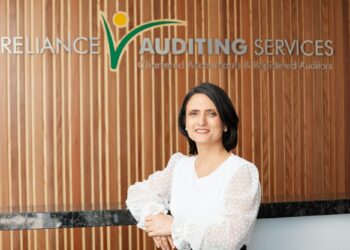Speaking to SMSF Adviser, SuperConcepts executive manager, SMSF technical and private wealth, Graeme Colley explained that the related-party definition under the SIS legislation is limited to three categories, including members of the superannuation fund, standard employer sponsors and part 8 associates.
“The traps are a little bit more obvious than what you might think. The first one is who is the member of a superannuation fund,” he explained.
“The legislation doesn’t really help you at all so you’ve got to go over the trust deed, which will tell you who is a member of that superannuation fund. So it’s really up to the trust deed itself.
“It might be that somebody has filled in a form and they’ve become a trustee or a member of the superannuation fund, or they might have made a contribution to the fund and they’re deemed to be a member of the superannuation fund simply because of the actions that they’ve taken.”
Mr Colley said that while this may be obvious, there can be some traps where there are disagreements between members and members are dismissed from the fund.
“Traps will occur in situations where you have somebody who’s been kicked out as a member or a director or the super fund,” he said.
“In families that are at war with each other, the kids will be members of the superannuation fund and mum and dad may not see eye to eye with the kids, and they may boot them out of the super fund.
“I’ve got one case at the moment where the child was dismissed from the superannuation fund as a trustee and a member, and yet the employer that he works for continues to make contributions to that superannuation fund. The question then becomes, is he still a member of that superannuation fund, simply because he hasn’t cancelled the contributions coming in from that employer?”
In this particular situation, Mr Colley said the parents have continued accepting the contributions, which has been going on for nearly two and half years.
“If it was one or two contributions, that’s not a problem. However, in this case, it’s been going on for nearly two and a half years. So simply by omission, that child may now be a member of that superannuation fund and can be involved in management of the fund itself. There’s a whole bunch of other compliance issues around that [as well],” he cautioned.
Mr Colley said if a situation like this was to go to court, the court would likely look at it from the point of view of trust law rather than the point of view of the trust deed itself.
“If the trustees continue to blindly accept those contributions into the super fund then surely that must create a right for that particular member and the child would be able to make a claim against the superannuation fund because of what’s happened,” said Mr Colley.
“[However] if all the all the parents have done is accounted for that as being an amount received for this person and they just accrue that, then it may be unclear. I think that’s probably less likely and that the Tribunals would probably accept the person as being a member of the superannuation fund in some way.”
In terms of members with zero balances, Mr Colley explained that APRA released a Circular many years ago that has now been archived, which states that anybody who has a beneficial entitlement in the superannuation fund is entitled to be a member of the fund.
“Just because you’ve got a zero balance doesn’t mean that you don’t have a contingent entitlement,” he noted.
“For example, if you’re a member of a superannuation fund and maybe your spouse is a member of that superannuation fund as well, and they’ve got an insurance policy, and because of the spousal relationship you might be entitled to the proceeds of that insurance policy, if they happen to die or something happens to them, then you may be a member. So it can be determined by the trust deed of the fund.”
Graeme Colley will be speaking extensively about the related party definition at the upcoming SMSF Association National Conference this Wednesday.


